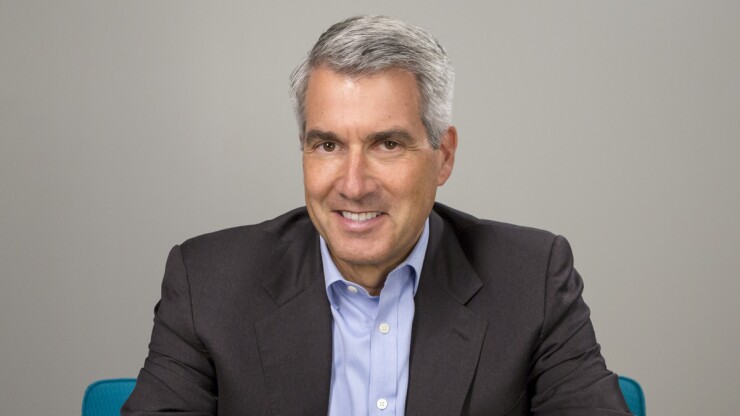
Even before deposits abruptly exited Silicon Valley Bank, First Republic Bank and other troubled institutions in March, consumers were already moving their funds into companies that are best known as credit card issuers, like Discover and Capital One.
Due to higher interest rates and the convenience of online account access, several of the nation's largest credit card issuers began to see an unprecedented rise in deposits beginning late last year, with momentum building during the first three months of 2023, they said when reporting first-quarter results.
For example, Discover Financial Services' consumer
The rush to higher-interest accounts generated additional headlines in recent weeks when
But the frenzy of consumers moving their savings to higher-earning accounts is unlikely to last much more than another quarter, said Bob Napoli, a partner and co-group head of the financial services and technology sector at William Blair.
"This is a short-term thing, the result of banks being a little stingy for a while even after the Fed raised interest rates, when consumers were asleep," Napoli said. "As consumers wake up and see better opportunities, they'll keep moving money into accounts where they earn more than zero."
Credit card-issuing banks are in an ideal position to reap these deposits because of streamlined digital channels and the lack of costly branch infrastructure, but only a certain percentage of consumers are likely to move their accounts, according to Napoli.
"This consumer cash-sorting —moving accounts from one place to another to get a higher yield — will peak and slow down over the next quarter or two," Napoli said.
There's no long-term gain in chasing consumer deposit accounts by offering the highest rates, according to Discover's CEO Roger Hochschild.
"When you do that, you attract 'hot money,' and as soon as you stop paying the highest rate, those customers leave. We're aiming to be competitive with a broad value proposition, but not to lead the market," Hochschild said in an interview.
Synchrony pays consumers a rate of 4.15%, which fits the bank's strategy of building stickier customer relationships through a savings account consumers access through Synchrony and one Synchrony supports through PayPal — along with multiple financing programs, credit cards and buy now/pay later offers, Brian Wenzel, Synchrony's chief financial officer, said in an interview.
"Our digital-first approach makes us a safe haven for a lot of people looking for diverse financial services options, and because we have tremendous geographic dispersion, we're at lower risk when it comes to deposit flight," Wenzel said.
Bread Financial's deposit base from its Bread Savings account during the first quarter grew 70% year over year to $5.6 billion, with that cash now accounting for 28% of Bread's total loan-funding mix, up from 19% a year earlier.
The inflow of deposits helps Bread maintain a low-cost channel for funding loans, executives told analysts last week when announcing first-quarter earnings.
Overall, consumer-generated deposits are only one source of credit card issuers' loan funding at a time when these issuers are generally flush with capital, Napoli said.
"During this period of sorting when consumers are moving money around, the big credit card issuers are using their overall franchises to advance their market share, but it's not going to make a huge dent in the overall banking picture as things settle down," he said.






